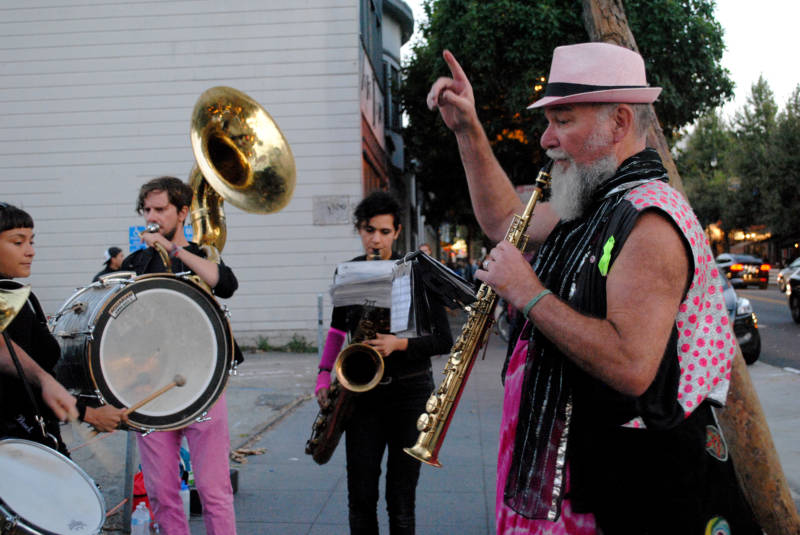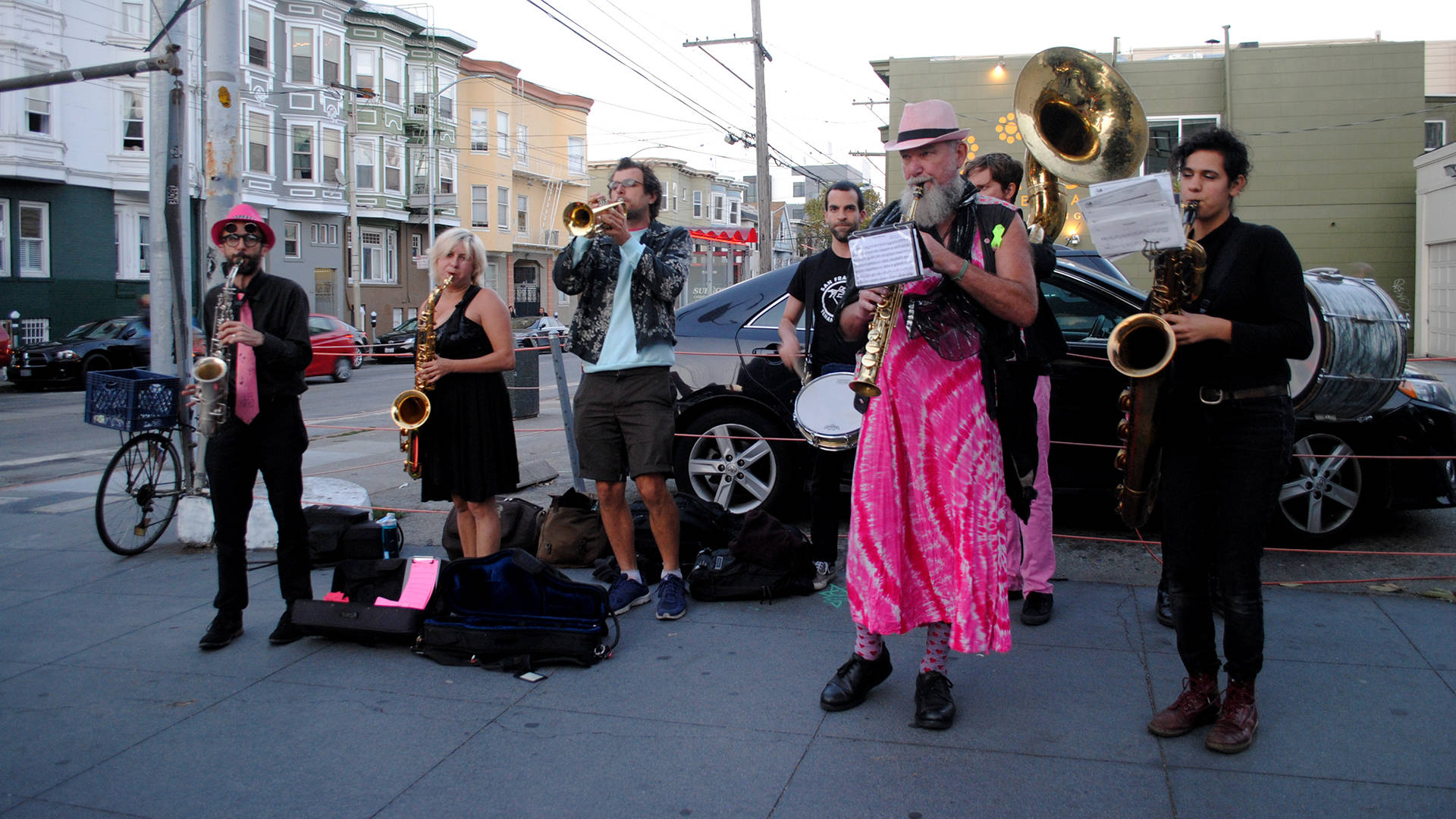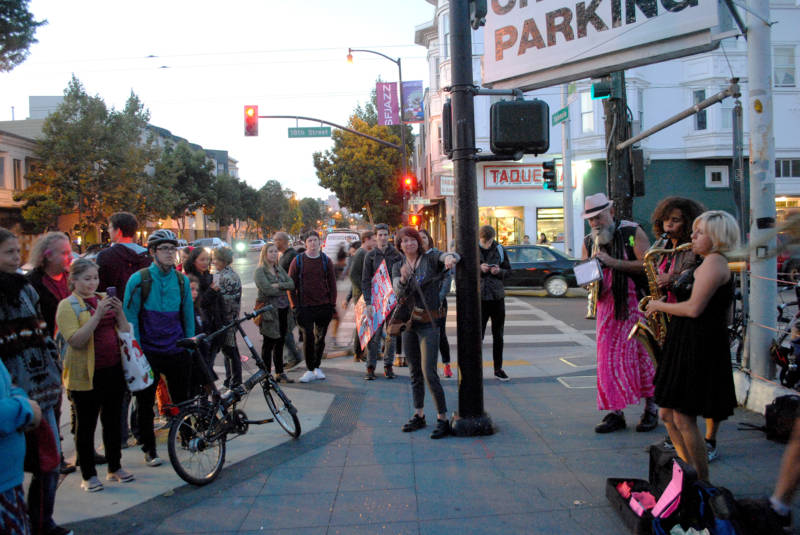Earlier this month at the Defend DACA protest in downtown Oakland, Brass Liberation Orchestra marched among the crowd like pied pipers of the resistance, drawing passersby into the procession with their jovial horns. The band members took turns as conductors, using hand gestures to quiet the brass instruments so protesters could chant along to the drum line’s beat: “El pueblo únido jamás será vencido! / The people united will never be divided!”
People who happened to show up to the march with musical instruments — including one person with an Afro-Brazilian berimbau — spontaneously joined the Orchestra as it marched through the streets. This is how Brass Liberation Orchestra has acquired most of its 20-something members: Through serendipitous run-ins at actions. The sprawling, multi-generational brass band has drummed up energy at Bay Area protests since the early 2000s, and most of its musicians encountered Brass Liberation Orchestra at a march before deciding to pick up their instruments and join.

A full-time musician going only by the name Breakfast, with salt-and-pepper hair and a pink fedora, remembers attending an Occupy protest in San Francisco in 2012, saxophone in hand, when he spotted Brass Liberation Orchestra. When rumors circulated that police would raid the camp that night, protesters divided themselves into two groups: One to defend the camp and one that didn’t want to risk arrest. Brass Liberation Orchestra was in charge of leading the second group to safety by using their music to guide people away from the conflict zone.
“Wow, so all these musicians have shown up and they have a functional role,” recalls Breakfast when I meet him and several other members of Brass Liberation Orchestra at a dive bar in the Mission district, before they head out to busk on a recent Friday night. “It’s not for expression or entertainment or any of these other roles we normally assign music to. Its role was to protect people’s physical safety.”
Candy Michelle Smallwood, an eviction defense lawyer by day, first heard Brass Liberation Orchestra at an anti-eviction march two years ago when she worked at the Housing Rights Committee of San Francisco. “There was this really awesome march that started at Dolores Park and went to different houses where people were facing eviction. Through this whole march — which lasted about two hours — there was this band that was playing.”




